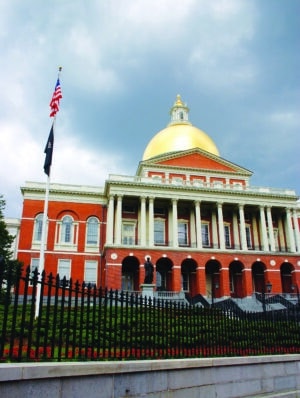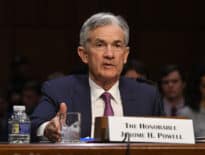With a vote possible in the House next week on a transportation revenue bill, the details of such a package remain in development and its possible components include measures dealing with the gas tax and ride-share fees.
“Still looking at it,” Rep. Mark Cusack, the House chair of the Revenue Committee, told the News Service Tuesday when asked for a status update on the long-awaited bill.
“There’s a lot of moving parts, and since we kind of announced a couple weeks ago that we’re trying to get things done before the 20th, the membership and other groups have really come in with a lot of proposals, so we’re going through a lot of that,” Cusack said after a hearing on a bill that would create a live theater tax credit pilot program.
Next Wednesday, Nov. 20, marks the last day of formal legislative sessions until 2020, and Speaker Robert DeLeo has said he wants to bring a transportation revenue package to the House floor before the break.
“It’s going to be a busy next week,” Cusack said.
The House’s current schedule – which includes a formal session on Wednesday to take up an e-cigarette tax and tobacco flavor ban bill, followed by an informal session on Thursday and nothing slated for Friday – makes it unlikely that a revenue bill would be debated this week and suggests that a bill may not even emerge from committee until next week as well.
Cusack is one of the lawmakers DeLeo has met with to discuss revenue proposals, along with Majority Leader Ronald Mariano, Ways and Means Chairman Aaron Michlewitz and Transportation Committee Co-Chair William Straus.
Cusack, a Braintree Democrat, pointed to the state’s 24-cent gas tax and transportation network companies like Uber and Lyft as potential components of a bill.
“Every penny on the gas tax is $35 million, so it’s really hard to build a package without a big ticket item like that,” he said.
The Massachusetts Budget and Policy Center estimated in October that the state could raise about $32 million in additional revenue for every cent added to the gas tax, warning at the same time that raising the gas tax would disproportionately impact low- and moderate-income households.
Gov. Charlie Baker this month outlined the case against a gas tax increase, but the possibility of some sort of gas tax hike has backing among several key business groups.
A coalition of more than two dozen business groups spent months exploring possible ways to address the state’s traffic congestion and unpredictable public transit system, finding different levels of consensus on a handful of revenue-raising options.
There was “strong majority support” among the Massachusetts Business Coalition on Transportation for raising transportation network company fees by at least $1 per ride, and roughly 70 percent of the groups supported a gas tax increase between 5 and 25 cents, Greater Boston Chamber of Commerce President and CEO James Rooney said in late October.
Meanwhile, the advocacy coalition Raise Up Massachusetts has called for any revenue package to include proposals to create a tiered corporate minimum tax, address offshore tax shelters used by businesses, and require businesses to publicly disclose their tax burdens.
The House Progressive Caucus has been discussing revenue options ahead of the expected debate, according to caucus member Rep. Mike Connolly, who described the Raise Up proposal as “perhaps the most notable plan at this point.”
Connolly said his focus during revenue deliberations “will be to ensure that we are considering a full range of revenue options, including options that will ask large corporations and the wealthiest households to pay their fair share in taxes.”







